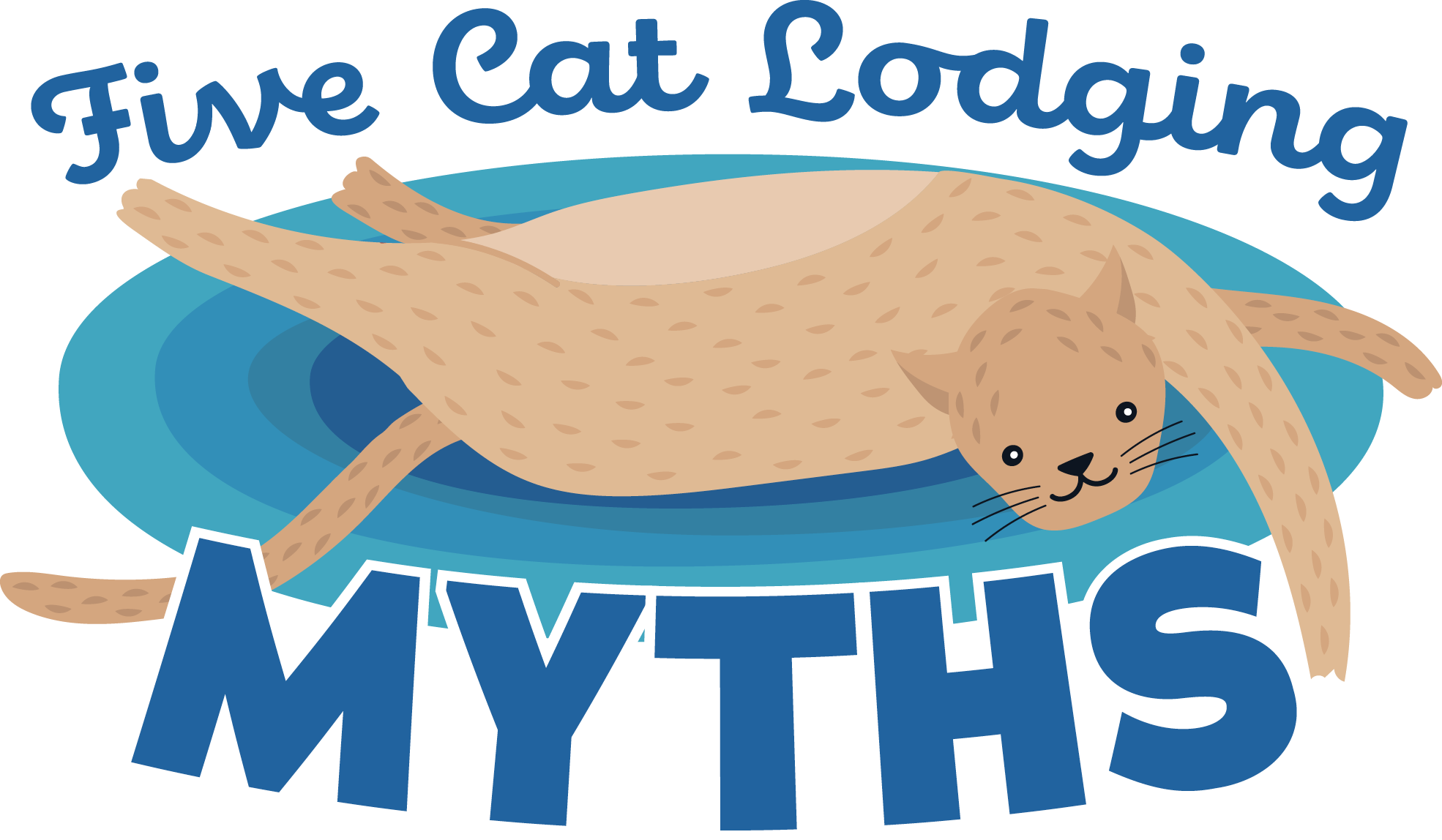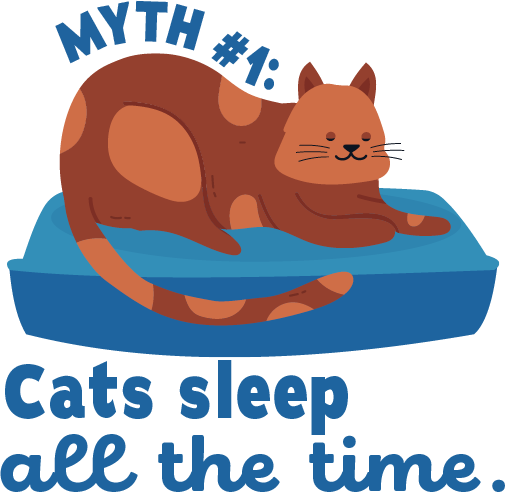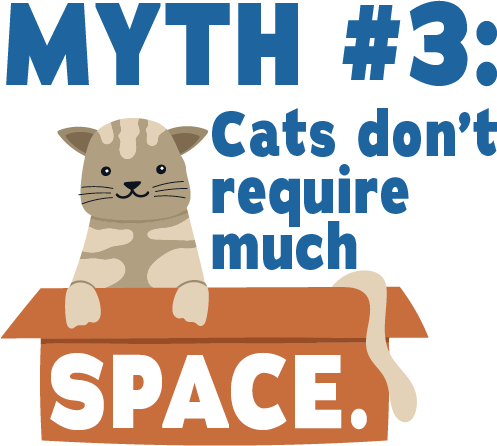
 hat’s so hard about caring for a pet that sleeps most of the day, doesn’t have to be taken outside to potty, requires very little space, doesn’t want to get to know you and doesn’t bark? Cat care is a piece of cake…right?
hat’s so hard about caring for a pet that sleeps most of the day, doesn’t have to be taken outside to potty, requires very little space, doesn’t want to get to know you and doesn’t bark? Cat care is a piece of cake…right?
Although these statements are mostly accurate, in a lodging center, they may not apply. These commonly repeated cat behaviors are frequently the reasons that people choose to have cat lodging in their centers, but are not necessarily always true. So, let’s debunk some myths!

Other triggers that may cause anxiety and lack of sleep are changing a cat’s food and bombarding them with new odors. Both of these can be avoided by a conversation with the parents prior to the stay. Ask parents if their cat has rejected changing food and/or switching brands of litter. If the cat’s tummy has a hard time adjusting to the taste of new food or it doesn’t use the litter box when brands are changed, have them bring food and/or litter from home. Additionally, cats are extremely sensitive to smells. You can minimize odors by using fragrance-free litter and cleaners. By spraying products directly on your cleaning cloths instead of atomizing them into the air, you can dramatically reduce smells that might be offensive to cats. One positive smell is a plug-in pheromone diffuser, which can be helpful to calm cats and improve sleep time.

If you do it right, you should have a large area for play time and space for supplies and belongings. This isn’t an area to scrimp on; plan for their enclosures to give them privacy and also ability to move into areas to explore.

In our lodging area, there is a cat chart of different behaviors so our team can learn what some of their common expressions mean. Here are some little tricks that work great: 1) Raise the pitch of your voice, as it can make you more desirable to the cat; 2) Watch for a relaxed body and a still tail when you approach the cat, as he’s probably receptive to you; and 3) If you speak to the cat in a soft voice with your face close to the door screen or grating, he will probably come close to smell your breath, and then be your friend forever (according to one of our cat-loving managers). Caution: Fractious cats may take a different approach!


If you are considering lodging cats, remember, cats aren’t “easy.” They require the watchful eye of your team every single day, and they need exercise, purposeful play and lots of love to have a stress-free vacation away from home. Enjoy them, as they are incredible, funny creatures that bless our world!
Suzanne Locker has owned ABC Pet Resort & Spa in Houston, Texas since 1991 and serves as CEO of the company. After 32 years of working in multiple capacities across the national stage, Suzanne continues to be an active, involved leader in the pet care industry. She is a consultant for Pet Care Management Boot Camp, in partnership with Turnkey, Inc., an architectural design/build/consulting firm, and remains dedicated to promoting safe, happy pet care!

